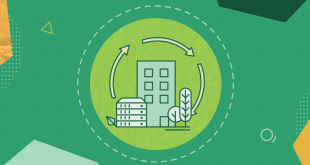In today’s digital age, where online presence is paramount for businesses and individuals alike, web hosting plays a crucial role. Shared hosting has long been a popular choice due to its cost-effectiveness and simplicity. However, with the rising threat of cyber attacks, the need for next-generation security measures in shared hosting platforms becomes evident. In this comprehensive blog, we will delve into the advancements in cybersecurity for shared hosting, ensuring your online presence remains safe and protected.
Understanding Shared Hosting: The Basics
Before we delve into the advancements in cybersecurity, let’s have a quick overview of shared hosting. In shared hosting, multiple websites share resources on the same server, making it a cost-effective option. However, it also means that potential vulnerabilities in one website can affect others on the same server.
Shared hosting is often favored by small businesses, bloggers, and startups due to its affordable pricing. However, the security aspect must not be overlooked, given the increasing frequency of cyber threats.
The Evolution of Cyber Threats
As the internet landscape evolves, so do cyber threats. Hackers are continuously devising new techniques to infiltrate systems and exploit vulnerabilities. The common security threats in shared hosting include Distributed Denial of Service (DDoS) attacks, data breaches, malware infections, and cross-site scripting (XSS) attacks.
With the rising adoption of shared hosting platforms, the need for robust security measures has become critical to safeguard websites and sensitive data from malicious actors.
The Role of Next-Gen Security in Shared Hosting
Next-generation security encompasses a wide array of advanced technologies and practices to counter emerging cyber threats effectively. Shared hosting platforms have started integrating these cutting-edge security measures to enhance protection for their users.
Some of the key advancements include:
Web Application Firewalls (WAFs):
WAFs act as a shield between the website and potential threats, filtering out malicious traffic and blocking hacking attempts, such as SQL injections and XSS attacks.
Two-Factor Authentication (2FA):
Implementing 2FA adds an extra layer of security by requiring users to provide two forms of identification before accessing their accounts, reducing the risk of unauthorized access.
Malware Scanning and Removal:
Automated malware scanning detects and removes malicious code from websites, preventing potential damage to data and reputation.
Secure Sockets Layer (SSL) Certificates:
SSL certificates encrypt data exchanged between users and the website, ensuring secure communication and protecting sensitive information.
Is Free Hosting Safe?
Free hosting services are enticing, especially for those starting with a limited budget. However, security concerns loom over these platforms. While some free hosting providers may implement security measures, they often lack the robustness and support of paid hosting services.
Consider the following security risks associated with free hosting:
Limited Security Features:
Free hosting services may not offer advanced security features like WAFs and malware scanning.
Shared IP Addresses:
With free hosting, your website shares an IP address with multiple other sites, increasing the risk of being affected by others’ security breaches.
Minimal Support:
Free hosting providers may not provide timely support for security-related issues, leaving your website vulnerable for extended periods.
The Future of Cybersecurity for Shared Hosting
As technology continues to advance, the future of cybersecurity for shared hosting looks promising. Here are some potential developments:
Artificial Intelligence (AI)-Driven Security:
AI can help identify and mitigate cyber threats in real-time, allowing for quicker responses to potential attacks.
Behavioral Analytics:
Analyzing user behavior patterns can help detect unusual activities and preemptively address potential security breaches.
Zero-Trust Security Model:
The zero-trust model focuses on verifying every user and device attempting to access the network, reducing the risk of unauthorized access.
Containerization:
Implementing containerization technology can isolate applications and prevent the spread of malware across shared hosting environments.
Final Words
In conclusion, the advancements in cybersecurity for shared hosting platforms are a testament to the ongoing efforts to protect users’ online presence and data from malicious threats. Next-generation security measures, such as WAFs, 2FA, SSL certificates, and malware scanning, have become integral components of shared hosting services.
While free hosting may seem appealing, it often lacks the comprehensive security features and support required to safeguard your website effectively. Investing in a reputable shared hosting provider with robust security measures is crucial for a safe online experience.
Commonly Asked Questions
-
Is shared hosting suitable for e-commerce websites?
Shared hosting can be suitable for small to medium-sized e-commerce websites with moderate traffic. However, for larger e-commerce platforms with high traffic and security demands, dedicated hosting or managed hosting may be more appropriate.
-
What is the role of SSL certificates in shared hosting security?
SSL certificates encrypt data transmitted between the user’s browser and the server, ensuring secure communication. This prevents sensitive information, such as login credentials and payment details, from being intercepted by malicious actors.
-
Can shared hosting platforms handle DDoS attacks?
Shared hosting platforms with robust security measures, such as WAFs, can handle certain DDoS attacks. However, for more severe and sophisticated attacks, specialized DDoS protection services or dedicated hosting solutions might be necessary.
-
Are there any downsides to using free hosting services?
Free hosting services often come with limited security features, slower loading times, and restricted support. Additionally, some free hosts may display advertisements on your website, impacting user experience and professionalism.
-
How frequently should I update my website’s security measures?
It is essential to regularly update your website’s security plugins, software, and CMS to stay protected against the latest threats. Implementing security updates promptly helps to mitigate potential vulnerabilities.
 webfily
webfily



